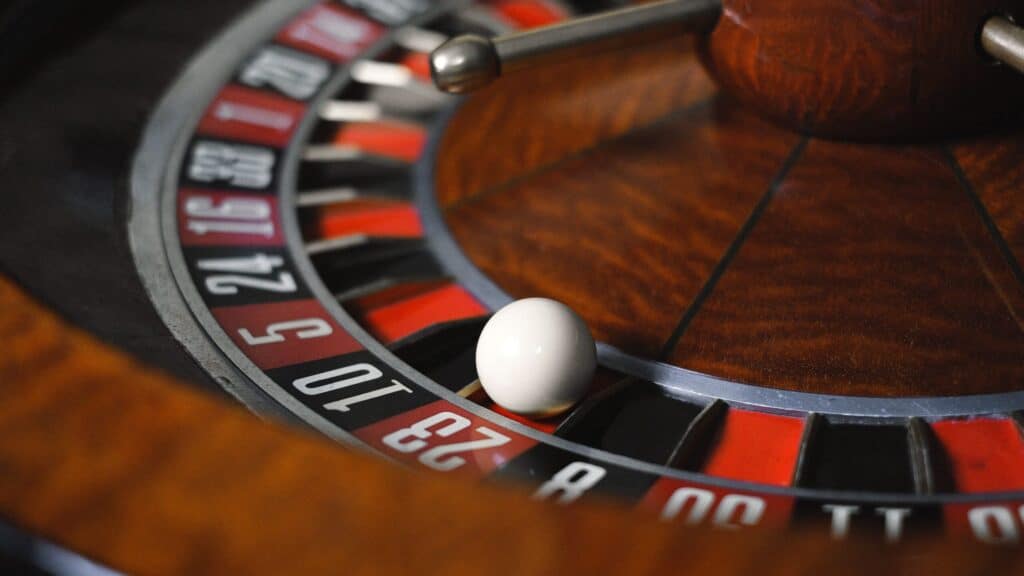Roulette betting systems are strategies used by players to manage their wagers in the game of roulette, aiming to increase their chances of winning or minimize losses, but it's crucial to understand their limitations.
Understanding Roulette and Betting Systems
Roulette, a casino game of French origin, involves a spinning wheel and a ball. Players bet on where the ball will land on the wheel, choosing from a variety of options like numbers, colors (red or black), or number groups (odd or even, high or low). The game's appeal lies in its simplicity and the suspense of each spin. While luck is the primary factor in roulette, many gamblers employ betting systems to structure their approach, hoping to gain an edge. These systems are not designed to overcome the inherent house edge but rather to manage bankroll and potentially capitalize on short-term winning streaks.
Roulette Basics: Wheel, Table, and Bets
The roulette wheel is divided into numbered pockets, alternating between red and black, with one or two green pockets numbered 0 (and 00 in American roulette). The table layout mirrors these pockets, displaying various betting areas. Bets in roulette are categorized as inside and outside bets.
- Inside Bets: These are bets placed on specific numbers or small groups of numbers. Examples include:
- Straight Up: Bet on a single number with a payout of 35 to 1.
- Split Bet: Bet on two adjacent numbers with a payout of 17 to 1.
- Street Bet: Bet on three numbers in a row with a payout of 11 to 1.
- Corner Bet: Bet on four numbers forming a square with a payout of 8 to 1.
- Line Bet: Bet on six numbers in two rows with a payout of 5 to 1.
- Outside Bets: These bets are placed on larger groups of numbers, offering higher odds of winning but lower payouts. Examples include:
- Color Bets (Red or Black): Bet on all red or black numbers with a payout of 1 to 1.
- Odd or Even Bets: Bet on all odd or even numbers with a payout of 1 to 1.
- High or Low Bets: Bet on numbers 1-18 (low) or 19-36 (high) with a payout of 1 to 1.
- Column Bets: Bet on one of the three columns of numbers with a payout of 2 to 1.
- Dozen Bets: Bet on the first, second, or third dozen numbers (1-12, 13-24, 25-36) with a payout of 2 to 1.
The odds and payouts are crucial to understanding the game and evaluating betting systems. European roulette, with a single zero, has a house edge of approximately 2.7%, while American roulette, with both a single and double zero, doubles the house edge to about 5.26%. This house edge means that for every £100 wagered, the casino expects to keep £2.70 in European roulette and £5.26 in American roulette over the long run, regardless of the betting system used.
Popular Roulette Betting Systems
Numerous betting systems are popular among roulette players. Each system has its own set of rules and theoretical advantages and disadvantages. It's important to remember that no betting system can eliminate the house edge in roulette. Here are some of the most well-known systems:
The Martingale System
The Martingale system is perhaps the most famous and straightforward betting system. It's a negative progression system, meaning you increase your bet after a loss. The basic premise is to double your bet after each loss, so when you eventually win, you recover all previous losses plus a small profit equal to your original bet.
How it works:
- Start with a base bet (e.g., £1) on an even-money outside bet (like red/black).
- If you win, repeat the same bet.
- If you lose, double your bet for the next round.
- Continue doubling your bet after each loss until you win.
- Once you win, revert to your base bet.
Example:
Start bet: £1 (Loss) - Balance: -£1
Second bet: £2 (Loss) - Balance: -£3
Third bet: £4 (Loss) - Balance: -£7
Fourth bet: £8 (Win) - Balance: +£1 (Profit)
Pros: Simple to understand and implement. In theory, a win at any point recovers all losses and yields a profit equal to the initial bet.
Cons: Requires a large bankroll to sustain potential losing streaks. Table limits can prevent you from doubling your bet indefinitely. A long run of losses can lead to very large bets quickly. For example, after 10 consecutive losses with a £1 base bet, the next bet would need to be £1024 just to win back £1 profit. This system is very risky and can lead to rapid depletion of funds if a losing streak occurs.
The Reverse Martingale (Paroli) System
The Reverse Martingale, also known as the Paroli system, is a positive progression system. Unlike the Martingale, it involves increasing your bet after a win and decreasing it after a loss. The idea is to maximize winnings during winning streaks and minimize losses during losing streaks.
How it works:
- Start with a base bet.
- If you win, double your bet for the next round.
- If you lose, return to your base bet.
- Typically, players often revert to the base bet after a predetermined number of consecutive wins (e.g., three wins in a row).
Example (stopping after 3 wins):
Start bet: £1 (Win) - Balance: +£1
Second bet: £2 (Win) - Balance: +£3
Third bet: £4 (Win) - Balance: +£7
Fourth bet: £1 (Loss) - Balance: +£6
Pros: Less risky than the Martingale as you are not chasing losses. Capitalizes on winning streaks. Limits potential losses during losing streaks.
Cons: Profits are made only during winning streaks, and losses can accumulate quickly during losing streaks. Winning streaks are not guaranteed and are subject to variance.
The D'Alembert System
The D'Alembert system is another negative progression system, but it's considered less aggressive than the Martingale. It's based on increasing and decreasing bets by a fixed amount rather than doubling.
How it works:
- Start with a base bet (e.g., £1) on an even-money bet.
- Increase your bet by one unit after each loss.
- Decrease your bet by one unit after each win.
Example:
Start bet: £1 (Loss) - Balance: -£1
Second bet: £2 (Loss) - Balance: -£3
Third bet: £3 (Win) - Balance: -£0
Fourth bet: £2 (Win) - Balance: +£2
Pros: Less risky than the Martingale due to slower bet progression. Easier to manage bankroll compared to Martingale.
Cons: Slower profit accumulation compared to Martingale. It relies on the number of wins and losses eventually evening out, which is not guaranteed in the short term. If losses occur in succession early on, it can be challenging to recover.
The Fibonacci System
The Fibonacci system is based on the Fibonacci sequence (1, 1, 2, 3, 5, 8, 13, 21, etc.), where each number is the sum of the two preceding ones. It's used for even-money outside bets and is a negative progression system, though less aggressive than Martingale.
How it works:
- Start at the beginning of the Fibonacci sequence with a £1 bet.
- After each loss, move to the next number in the sequence for your next bet.
- After each win, move back two numbers in the sequence. If you are at the beginning of the sequence, restart from £1.
Example:
Bet £1 (Loss) - Balance: -£1 (Next bet: £1)
Bet £1 (Loss) - Balance: -£2 (Next bet: £2)
Bet £2 (Loss) - Balance: -£4 (Next bet: £3)
Bet £3 (Win) - Balance: -£1 (Next bet: £1 - move back two steps in sequence)
Bet £1 (Win) - Balance: +£0 (Next bet: £1 - restart sequence)
Pros: Slower progression than Martingale, making it less risky. Structured betting approach based on a mathematical sequence.
Cons: Can still lead to significant losses during long losing streaks. Recovers losses slowly, and profits are modest relative to risk.
The Labouchere System (Cancellation System)
The Labouchere system, also known as the cancellation system, is a more complex negative progression system. It involves creating a line of numbers and using them to determine bet sizes.
How it works:
- Create a line of numbers (e.g., 1-2-3).
- The initial bet is the sum of the first and last numbers in the line (1+3 = 4 units).
- If you win, cross out the first and last numbers in the line. The next bet is based on the new line (in this case, just '2', so bet 2 units, or create a new line if all crossed out).
- If you lose, add the amount you just bet to the end of the line (e.g., line becomes 1-2-3-4). The next bet is the sum of the new first and last numbers (1+4 = 5 units).
- Continue until all numbers are crossed out.
Example (Line: 1-2-3):
Bet £4 (1+3) (Loss) - Balance: -£4 (Line: 1-2-3-4)
Bet £5 (1+4) (Loss) - Balance: -£9 (Line: 1-2-3-4-5)
Bet £6 (1+5) (Win) - Balance: -£3 (Line: 2-3-4)
Bet £6 (2+4) (Win) - Balance: +£3 (Line: 3)
Bet £3 (3+3, or just 3 if single number left) (Win) - Balance: +£6 (Line: all crossed out)
Pros: More flexible and potentially less aggressive than Martingale. Can lead to significant wins if winning streaks occur while cancelling out numbers.
Cons: Can lead to very long number sequences during losing streaks, resulting in large bets. Requires careful tracking of the number sequence. Like other systems, it doesn't overcome the house edge.
Risk Management and Bankroll Strategy
Regardless of the betting system used, effective risk management and bankroll strategy are crucial for playing roulette responsibly. Here are key principles:
- Set a Budget: Decide how much money you are willing to risk before you start playing and stick to it. Never chase losses.
- Bet Size: Choose a base bet that is a small percentage of your bankroll (e.g., 1-5%). This helps to withstand losing streaks and allows for longer playtime.
- Understand Variance: Roulette is a game of chance, and short-term results can vary widely. Be prepared for both winning and losing streaks. Betting systems can change bet sizes but not the underlying variance of the game.
- Know When to Stop: Set win and loss limits. If you reach your win goal or loss limit, stop playing. This prevents emotional decision-making and protects your bankroll.
The House Edge and System Limitations
It's critical to understand that no roulette betting system can overcome the house edge. The house edge is a mathematical advantage built into the game that ensures the casino will profit over the long term. Betting systems can change the way you bet and manage your money, but they cannot alter the fundamental probabilities of the game. Each spin of the roulette wheel is an independent event, and past outcomes do not influence future results. The idea of 'gambler's fallacy' – the mistaken belief that if something happens more or less frequently than normal during some period, it will happen less or more frequently in the future – is important to understand when considering betting systems.
Betting systems are primarily for structuring your betting and bankroll management, offering a disciplined approach to gambling. They can be fun to use and might make the game more engaging, but they should not be seen as a way to guarantee profits. Casinos readily offer roulette and allow the use of betting systems because they understand that these systems do not eliminate their inherent advantage.
Psychological Aspects of Using Betting Systems
The appeal of betting systems often lies in the psychological comfort they provide. For many gamblers, using a system creates a sense of control in a game of chance. This can make the gambling experience more enjoyable and structured. However, it's important to be aware of the psychological pitfalls:
- Illusion of Control: Betting systems can create a false sense of control over the game's outcome. It's easy to fall into the trap of believing that a system can predict or influence roulette spins, which is not the case.
- Emotional Rollercoaster: Negative progression systems, in particular, can lead to emotional stress during losing streaks as bets increase. Conversely, positive progression systems can create overconfidence during winning streaks.
- Chasing Losses: The belief in a system can sometimes encourage chasing losses, especially with systems like the Martingale. This can lead to impulsive decisions and exceeding budget limits.
Understanding these psychological aspects is crucial for responsible gambling. Betting systems should be used as tools for entertainment and bankroll management, not as a solution to beat the casino.
Variations of Roulette and Betting Systems
Roulette comes in several variations, primarily European and American roulette. European roulette has a single zero pocket, offering better odds for players, while American roulette has both a single zero and a double zero pocket, increasing the house edge. French Roulette is another variation that includes "La Partage" and "En Prison" rules, which can slightly reduce the house edge on even-money bets under specific conditions.
Betting systems can be applied to any roulette variation, but the effectiveness (or lack thereof) remains the same. The house edge is inherent to the game's rules, not the betting system. When choosing a roulette game, European or French Roulette are generally more favorable due to their lower house edge compared to American Roulette.
Conclusion: Systems as Tools, Not Solutions
In conclusion, roulette betting systems are strategies designed to structure your play and manage your bankroll. Systems like the Martingale, Reverse Martingale, D'Alembert, Fibonacci, and Labouchere offer different approaches to betting progression, each with its own set of potential benefits and risks. While these systems can make roulette more engaging and provide a sense of order, it is vital to recognize that they cannot overcome the inherent house edge. Roulette remains a game of chance, and no system can guarantee long-term profits.
For gamblers, understanding betting systems means appreciating them as tools for bankroll management and entertainment, rather than as foolproof strategies to beat the casino. Responsible gambling involves setting budgets, understanding the risks, and recognizing the limitations of any betting system. The true value of using a betting system in roulette may lie in the disciplined approach it encourages and the enhanced enjoyment it can bring to the game, provided it's approached with realistic expectations and a clear understanding of the game's probabilities.
External Resources:



